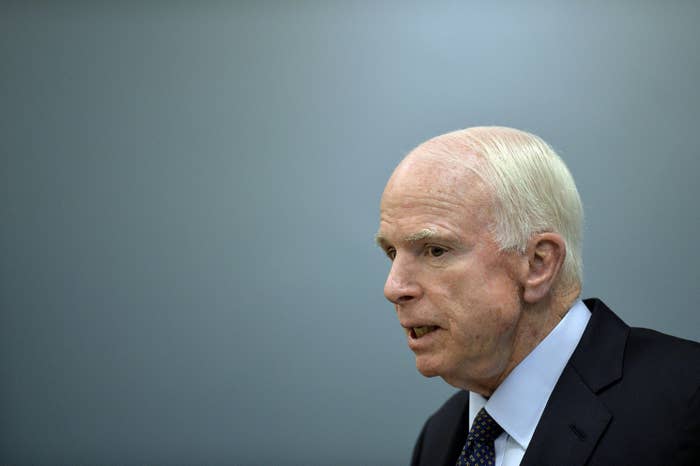
WASHINGTON, DC — Many Republicans in Congress are hostile to the idea of subsidizing the health insurance industry, but they may eventually have no choice.
It looks increasingly certain that Republicans will vote to repeal provisions of the Affordable Care Act this year, but give a years-long transitional period for Congress to come up with a replacement plan before repeal fully takes effect.
On its own, that would mean at least a few more years of a status quo that has increasingly seen insurance companies abandoning some state marketplaces. The insurance industry is calling on Congress to fund temporary programs to maintain market stability in 2017 and 2018 while Republicans work out a replacement plan.
To say that idea doesn't sit well with some Republicans would be putting it mildly.
“The insurance industry got us into this mess and I think they’re gonna have to pay the price for it," said Rep. Raul Labrador.
Sen. John McCain didn't even want to hear the industry's ideas.
“The insurance companies are the people that signed up for Obamacare. They have no relevance to me. I don’t want to hear from them," he said.
“Since they supported what has been a miserable failure, I’m not interested in hearing their recipes for fixing it.”
That leads to the question: If insurers are losing money under the current system, won't they just pull out of the markets? McCain hinted that they may not have that choice, but wouldn't elaborate.
“They will obey a law. If we pass a law they have to obey it," he said.
The Affordable Care Act had included a handful of programs to support the insurance industry that expired at the beginning of this month. One, the risk corridor program, had already been gutted by Republicans who denounced it as a taxpayer bailout of insurance companies.
Another, the reinsurance program, essentially acts as an insurance plan for insurance companies — it provides funding if they insure extremely high-cost patients. The expiration of this program is expected to play a role in hiking premiums in 2017.
Industry groups contacted by BuzzFeed News wouldn't say if they were lobbying for Republicans to extend the reinsurance program. But America's Health Insurance Plans, the lobby group for the industry, is publicly calling for Congress to "fund temporary, transitional programs" in order to "send strong signals that they are committed to market stability."
Republicans likely will have no choice but to suck it up and provide the industry some form of support, said Douglas Holtz-Eakin, president of the American Action Forum.
“Some kind of money is going to have to enter in there. I’m not smart enough to read their minds and say how they’re going to do it. But anyone’s who is smart enough to do the arithmetic knows they need to do something," he said.
Holtz-Eakin said that Republicans can make some administrative changes, such as reducing the grace period for people who don't pay their premiums, but those will likely be insufficient.
Republicans could come up with their own programs rather than continuing Obamacare ones. Holtz-Eakin said that despite the resistance within the Republican party to what could be seen as a bailout, the alternative would be watching their constituents be left without insurance options.
“I understand his sentiment completely," he said. "But the reality is you may have to keep the insurers in the market to help those people. And that’ll just be an uncomfortable moment.”
Not everyone in the party is shutting the door to insurance industry input. Republican Conference Chairman Sen. John Thune said that as they develop the Obamacare replacement the party is looking for healthcare ideas from everyone, including the healthcare industry.
“We’d be open to suggestions that they might have if they think it would create a more competitive marketplace out there," he said.
